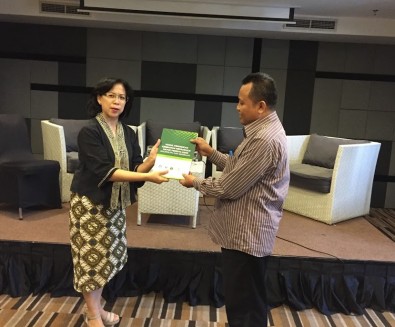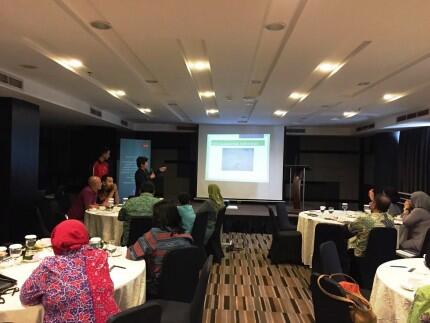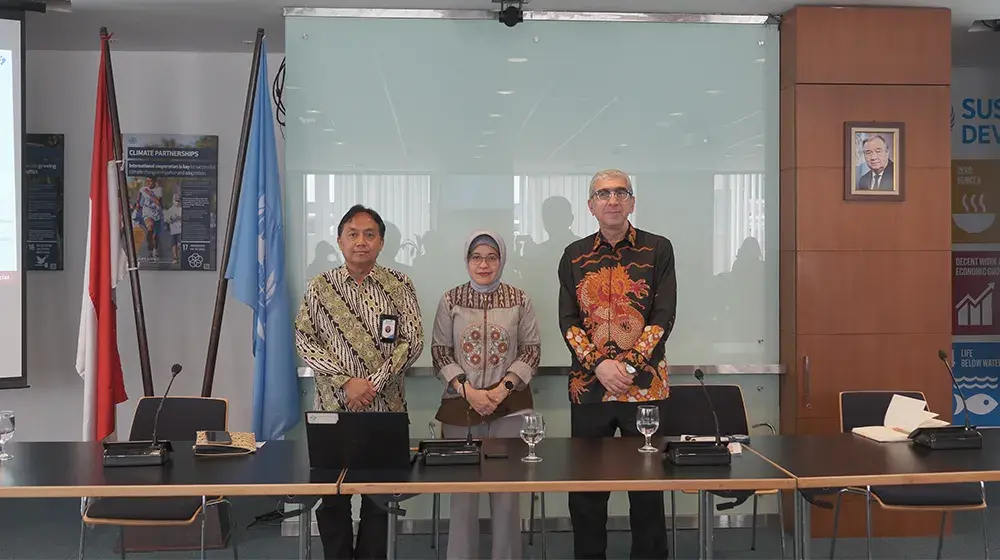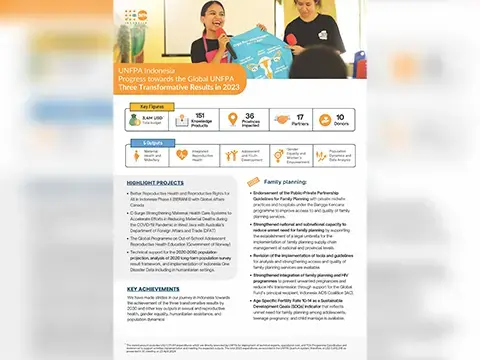Representatives from the Government, UN agencies, and religious, community and youth-led organizations recently came together to discuss the importance of providing comprehensive sexual and reproductive health education in Indonesia.
The “National Reference Material for Teachers on Adolescent Reproductive Health Education” seminar was organized by the Ministry of Health, with support from UNFPA Indonesia, and was held in Jakarta on 15 Sept.
“Without access to comprehensive sexual and reproductive health education and services, young people, especially girls, face daunting risks: unintended pregnancy, unsafe abortion, maternal morbidity and mortality, violence, and sexually-transmitted infections, including HIV,” explained UNFPA Indonesia Representative Mr. Jose Ferraris during his opening address. “UNFPA’s vision for adolescents and youth is a world in which their rights are promoted and protected.”
The seminar included presentations from Dr. Anung Sugihantono, Director General of Nutrition Management and Mother and Child Health from the Ministry of Health and Mr. Ahmad Rizali from the Ministry of Education and Culture. There were also representatives from the Ministry of Religious Affairs, the Ministry of Home Affairs, Ministry of Social Affairs, the National Population and Family Planning Board (BKKBN), teachers, students, civil society organizations and youth organizations.
There are more than 65 million young people in Indonesia aged between 10 to 24 years old – representing 28 percent of the population. While over the next 15 years this group of young people will be the main driver of economic growth and social change in the country, they will also face challenges – particularly in the area of sexual and reproductive health.
According to the UN’s 2010 “World Population Prospects”, every year, about half a million Indonesian teenagers give birth. Only 20 percent of Indonesia’s young people know how to prevent the sexual transmission of HIV, which is reflected by the fact that nearly 40 percent of new, confirmed AIDS cases are between the ages of 20 and 29. There is also a large gap between the knowledge and use of contraceptives in Indonesia, with the majority of sexually active young people not using any protection. And only 47 percent of married adolescents are currently using any method of contraception.
In 2012, UNFPA together with UNESCO in collaboration with the Ministry of National Education, introduced the International Technical Guidance on Sexuality Education (ITGSE) in Indonesia. The guideline was developed at the global level as a multi-agency collaborative effort involving UNESCO, WHO, UNFPA, UNAIDS and UNICEF. Eighty-seven countries have used the ITGSE as their reference in providing sexual and reproductive health education – with these programmes contributing to the delays in initiation of sex, reducing the frequency of sex and increased condom use. The ITGSE also provides an important platform to discuss gender issues – outlining curricula to promote mutually respectful and non-violent relationships and it contributes to the development of young people’s health and economic potential.
Dr. Elizabeth Jane Soepardi, the Director of Children’s Health from the Ministry of Health took the lead in developing the materials for Indonesia’s ITGSE.
During the panel discussion, representatives from the Ministry of Education, Ministry of Religious Affairs and the Ministry of Home Affairs acknowledged the good work that had been done by the Ministry of Health and UNFPA. One of the suggestions from the discussion was for the Ministry of Education to follow up the Ministry of Health initiative – in developing the national reference material of ASRH education for teachers – by developing a strong policy to encourage the government at a sub-national level to continue using the material for reproductive health education.

The other panel discussion saw teachers and students from elementary, junior and senior high school share their experiences on using the ASRH reference material. Based on their testimonies, the ASRH education proved to be a useful reference from a young age.
“UNFPA is committed to working with all of its partners to achieve universal access to sexual and reproductive health, including for young people,” added Mr. Ferraris. “Meeting this goal means reducing poverty and social and economic inequality, improving the wellbeing of all women, men and young people, and securing the human rights and prosperity of future generations in Indonesia.”





